Brexit and trade: Tattie buy bye
- Published
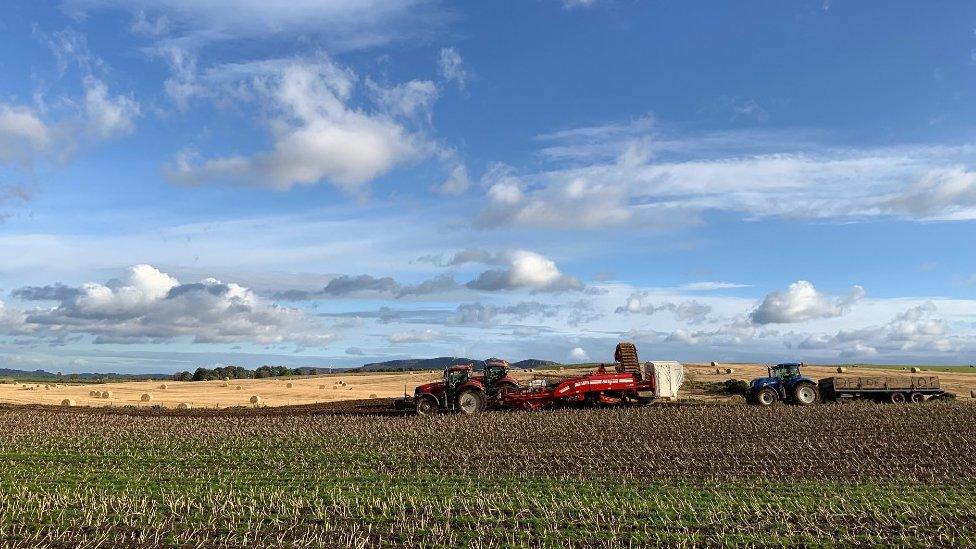
UK potato exports face a complete bar on exports into the EU if no deal is struck in the next few weeks on a future trading relationship.
For Scottish seed potato growers, boasting a premium product, there's a lack of preparation and a lack of clarity of what they're to prepare for.
More seed potatoes are already sold to Egypt, while inside the EU, and there is potential from a wider range of more distant markets.
There are advantages to Scotland's weather, at least if you're a potato. And by extension, it works for potato farmers.
The coldish winter and the rain kill off the bugs for several months a year that carry plant disease year-round in warmer climes.
Over three-to-five growing seasons, tubers planted in Mediterranean soil succumb to that disease and lose their fertility.
That's why farmers go back to Northern European suppliers to send them seed potatoes, free of disease.
What they also find, in Scotland anyway, is a lively research scene into new genetic strains, adapted to grow in different soils and under various conditions.
Robert Doig runs Caledonia Potatoes, and told me all about it on a visit to his laboratory near Glenfarg on the Perthshire side of its border with Fife. It's not your typical lab. It's an old farmyard barn.
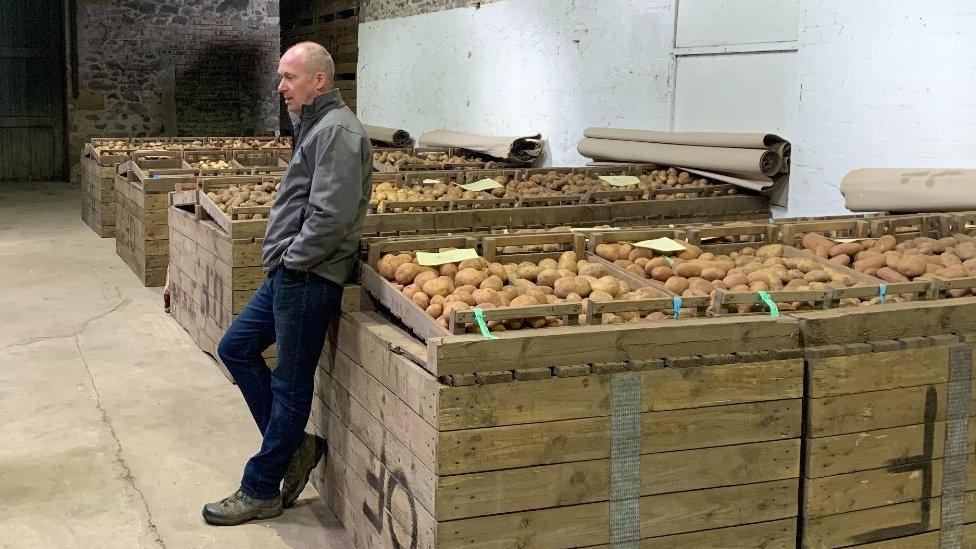
In normal times, he'd be off to Egypt to meet partner farmers and see how some of his 80 experimental potato strains are getting on in conditions very far removed from Tayside. He hopes to register the intellectual property to two or three potatoes a year.
But this year, I found him awaiting visits from retail buyers and exporters, who slice and dice his product for its potential in meeting market need.
McDonald's fries require a much lower sog factor than fish and chip shops prefer. Retailers are very conservative about their appetite for the bog standard Maris Piper, he regrets. The price-driven discounters have pushed the big four supermarkets into cutting back their range.
That's when there's an opportunity to differentiate for the discerning customer, either on taste variation or selling a more environmentally-friendly tattie that requires less water, fertiliser and pesticide.
Premium prices
I learned this while filming and finding out about an industry that is uniquely badly placed for a "no deal" Brexit in less than 90 days.
While the UK government can claim that the economy can go for an "Australia-style" arrangements, falling back on the lowest level of trading alignment under World Trade Organisation rules, that's no use for spuds.
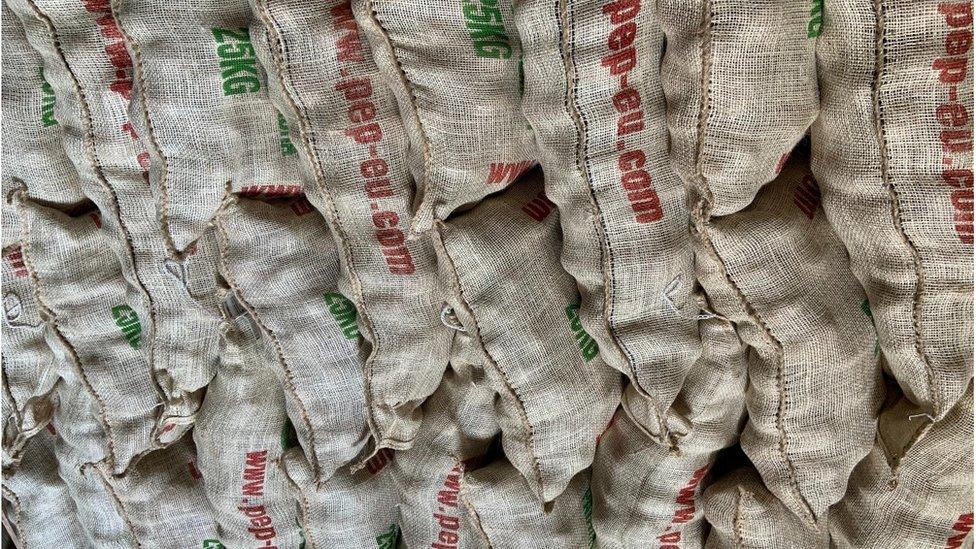
In the case of potatoes, none of them could be sold to the European Union. It has to do with food safety - the subject that brings us back to fears that economic Brexit could sky-high tariffs on meat exports to the EU, and pressure from the USA to adopt its different animal welfare standards.
That block on EU trade would go for the seed potato, providing premium prices for Scottish farmers, and the crop that goes to the retail and wholesale markets.
Seed potatoes were worth £113m to UK farmers in the year to last June. Around 100,000 tonnes were sold abroad, and Scotland accounts for three-quarters of the UK's 280 seed potato growers.
Third country
Yesterday, at J&E Smillie potato farmers near Perth, with 9,000 tonnes of seed potato stored in one warehouse, a small group of Romanian-Scots were bagging a specialist strain of spud for export to the Canary Islands.
Alistair Melrose, the commercial director told me there's a shift on to get produce into the European Union ahead of 31 December. That is work he would normally be doing in February to April.
He concedes the industry is not well prepared, and less so since its attentions have been turned to Covid-related market disruption and worker safety.
Should it be? Whitehall minister Lord Agnew complains that firms have had their "head in the sand" about Brexit. The Food and Drink Federation swiftly responded: "If any traders have their head in the sand it's because, after many frustrating months awaiting critical answers, they probably think it's more likely they'll find those answers in the sand than they will from the Government."
As I was hearing from farmers in Perthshire, a memo was sent out to Irish potato traders to make the same point: the potato gates may close that date, so deliver your cross-border orders in advance of then.
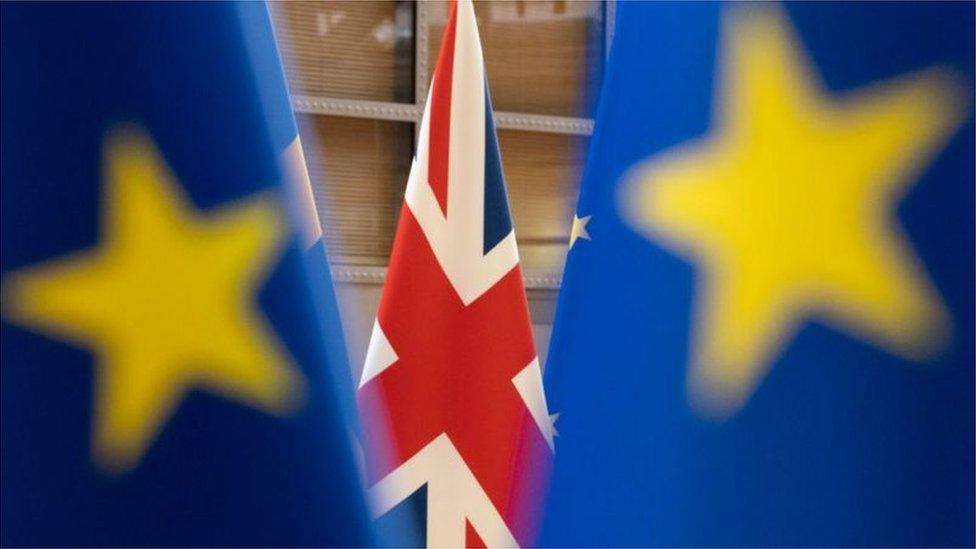
Robert Doig says there is no knowing when the EU market would re-open. The UK won't be able to apply for "third country" trading status until 1 January, and the speed at which the EU responds to that is up to Europeans. It could take a couple of months, or a couple of years, says the potato farmer.
Only with that status can the post-Brexit UK begin to build up a new relationship based on mutual recognition of food safety. At the moment, Britain is entirely aligned. But because Brexit has been driven by people who have long rubbished EU rule-making, there's a lack of trust that Britain will stick to the current standards. There's even less now that it is breaking international law on the Brexit deal struck only a year ago.
And as overseas farmers shift to new supplies, from the Netherlands, Denmark, Germany or Brittany, it becomes much more difficult to bring them back.
Even with a deal struck in the next few weeks, he expects it would still mean more inspections at port, more paperwork, and he fully expects it would involve tariffs. At present, seed potatoes imported into the EU, including the UK, carry a 5% tariff, and potatoes for retail and wholesale carry a border tax of 12 or 14%.
On top of at least £38 per tonne in transport charges to get seed potatoes to Rotterdam port for onward transport, that puts Scottish farmers at an even bigger disadvantage.
Thai tatties
If not the European Union, what are the prospects for selling into other, fast-growing markets beyond our nearest neighbours? That's the 'global Britain' vision set out by Boris Johnson.
The industry is already very good at that, without having to leave the EU. Sales to the EU from Scotland run to around 20,000 tonnes per year, and to Egypt, it's in the 30 to 40,000 tonnes range.
Morocco and Israel are big customers, and Thailand has recently increased its orders.
Patrick Hughes, based in Aberdeen, advises the sector for the Agriculture and Horticulture Development Board. He helps sift through a vast library of Brexit advice online, to find the small proportion that relates to potato farming in particular.
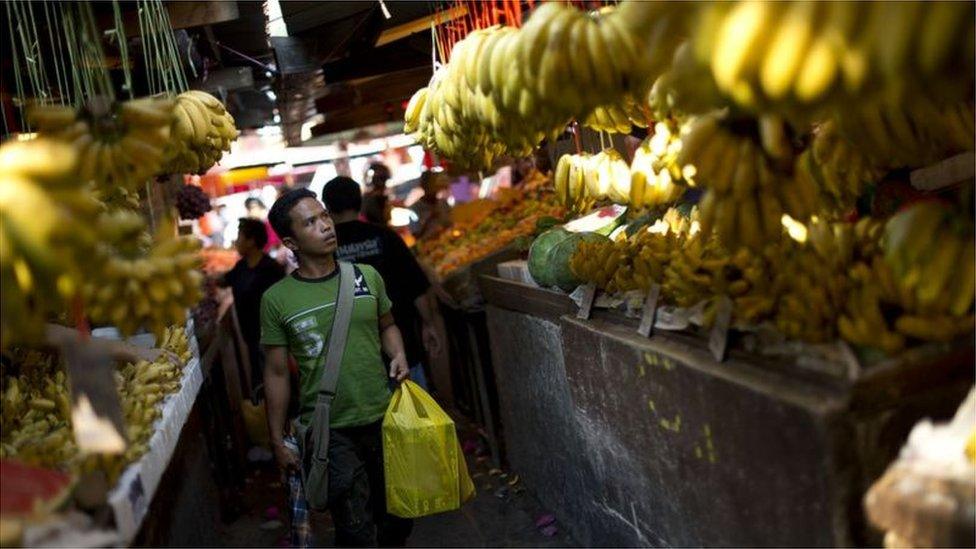
And his role is also to scope out growth markets. He sees further potential in south-east Asia, sub-Saharan Africa, the Caribbean and South America.
North America looks after its own potato industry and doesn't hold out much of a prospect.
Scotland has a premium product, says Hughes. It has very strong provenance and plant health safeguards.
It's the envy of many competitor countries. So while Covid has taken up a lot of business attention, and Brexit looms imminently, there is some reason to be optimistic.
